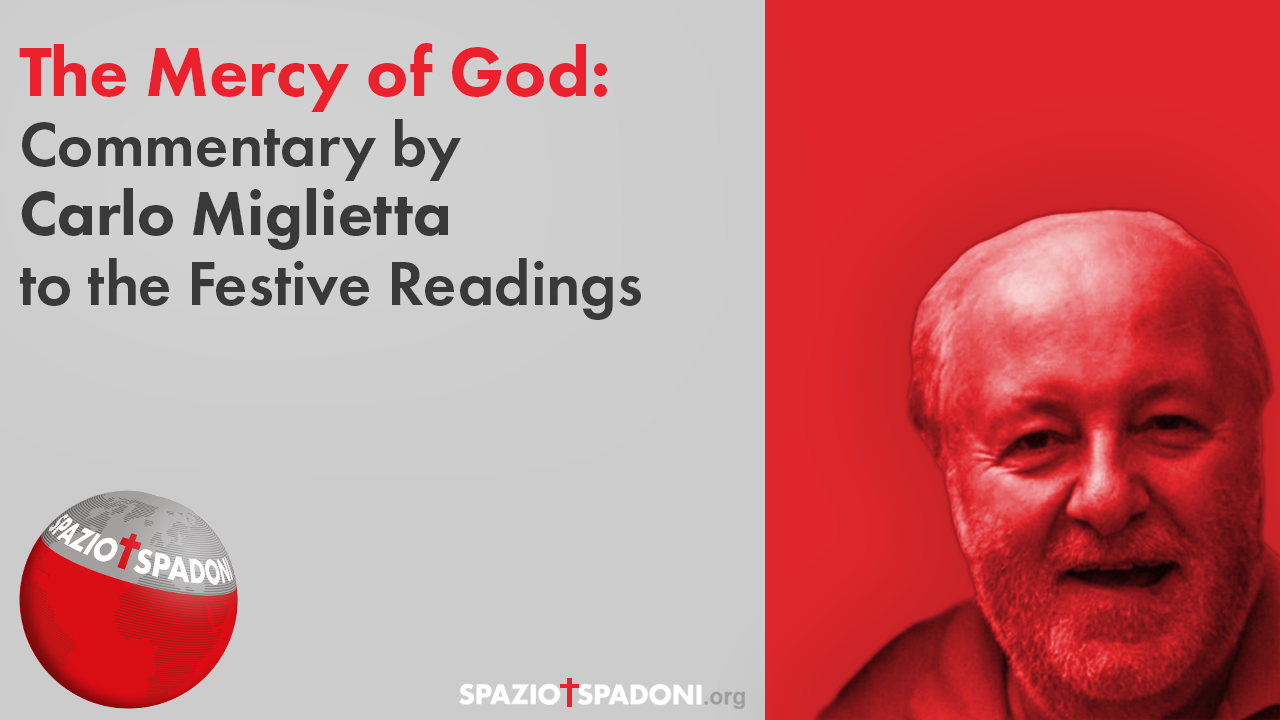
Holy Body and Blood of Christ
Readings: Ex 24:3-8; Heb 9:11-15; Mk 14:12-16.22-2
The Eucharist is “the source and summit of the Christian life” (LG no. 11). The Synoptics dwell at length on its institution, on the eve of the Passion: all consider “that” gesture performed by Jesus to be fundamental.
It was typical of the ancient prophets to express themselves through scenic actions, symbolic-revelatory gestures, sometimes real “mimes,” which were meant to impress well, in the minds of the bystanders, a precise message (Jer 13:1-11; 18:1-12; 19; 27-28:10; 51:63; Ez 3:24-5:4; Zech 11:15…). At the Last Supper, Jesus performs a “mime”: he takes the bread and wine, and gives them in food and drink, affirming that they are his body and blood “poured out for many”: it is the “scenic” revelation of his love, of his giving himself totally, of his emptying himself to the supreme sacrifice. We too sometimes say, “I love you so much that I would eat you”: and Jesus tells us that he loved us to the point of being eaten, to the point of being consumed for us: “No one has greater love than this: to lay down one’s life for one’s friends” (Jn. 15:13). And he obliges his own to live in the same logic of love and giving: “Do this in memory of me” (1 Cor. 11:24-25).
This is why John does not report the account of the institution of the Eucharist, but replaces it with that of the washing of the feet (Jn 13:1-30): with a parallel “mime,” he makes the best exegesis of the Eucharist: it is God coming down to the last place, enslaving himself out of love, serving to the point of total gift. And the Lord’s disciples are to wash one another’s feet, making themselves servants of one another, loving as Jesus loved (Jn. 13:34; 15:12). This is the mystery of the Eucharist: God canceling himself out of love, and asking us to cancel ourselves out of love (Lk 22:24-27; Mk 10:42-45).
Because of the importance of the Eucharist as a “memorial” of Christ who died and rose again, that is, as an experience of concrete love that leads us to give ourselves to one another, Mark devotes an entire section of his Gospel to the theme of “bread” (Mk 6:30-7:23). Facing the hungry crowds, Jesus says, “Give them something to eat yourselves” (6:37): the early community well understood, as constitutive elements of the Church, first the Word, which leads to conversion, then the communion of goods, as the fruit of following, which must precede the Eucharist (Acts 2:42-46; 4:32-35). If we are to celebrate the Eucharist without eating and drinking our condemnation (1 Cor 11:29), we must first be reconciled with our brother (Mt 5:23): we must ask ourselves whether we can make Eucharist if we have not first served our brothers and sisters, if we have not given them food ourselves, if we have not shared our goods with them… Perhaps because of this we are incapable of recognizing the Lord, like the disciples on the lake who mistook him for a ghost, “because they had not understood the fact of the loaves, their hearts being hardened” (Mk. 6:52): whoever does not find God in the love of the brethren, in serving them, in breaking bread for them, whoever does not understand the Eucharist, understands nothing of the Lord (1 Jn. 4:7-8): if we find him in the poor and the little ones (Mt. 25:31-46), we will also grasp his Presence in the broken Bread.
For Mark, there is no other sign of God’s Presence than that of bread (Mk 8:12). We, too, the “perverse and adulterous generation” (Mt 16:4) who look for signs of God in apparitions, in weeping Madonnas, in various miracles, are reminded that there is no other sure revelation of God than the Eucharist: only there, in that mystery of Love that is consummated and to which we can approach only by loving, is Jesus Christ certainly present in Body, Blood, Soul and Divinity!
